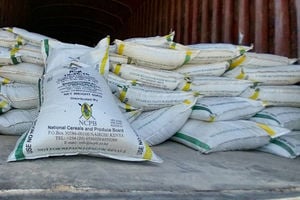What are the dangers of taking ARVs when HIV negative?

Port Reiz District Hospital head pharmacist Niko Gichana. PHOTO | WACHIRA MWANGI
What you need to know:
- Rapid test kits can also give faulty results if healthcare workers do not follow stipulated procedures, or if they are stored poorly.
- Laboratory reagents should also be stored under specified temperatures or they could lead to erroneous results.
According to Port Reiz District Hospital head pharmacist Niko Gichana, rapid test kits are accurate most of the time, but may sometimes not be clear.
“In one or two cases, the HIV results may be unclear. You may see two red lines, but one of them may not be fully there - in this case, before one is started on ARVs [[antiretroviral drugs], he or she should be tested at an advanced facility using a different specimen with a different person to confirm the results,” Dr Gichana explains.
Rapid test kits can also give faulty results if healthcare workers do not follow stipulated procedures, or if they were stored poorly.
Laboratory reagents should also be stored under specified temperatures or they could lead to erroneous results. The doctor adds that when testing children for HIV, a Polymerase Chain Reaction (PCR) test, which are DNA or RNA tests that look for the virus in the child’s blood, is done four times.
The test, he added, is very accurate and reserved for children and for HIV tests that a healthcare worker is not sure of.
“When a HIV-positive person is given ARVs, it boosts their immunity, but when a HIV-negative person takes them, it just undermines their immunity and interferes with their body organs.”
He, however, notes that some of the drugs administered to patients target viruses specifically, and not the body system.
“A drug can be a poison depending on the length and dosage used. If you do not have HIV and are taking ARVs, the symptoms could be as simple as nausea and vomiting or as complicated as reducing renal function."




